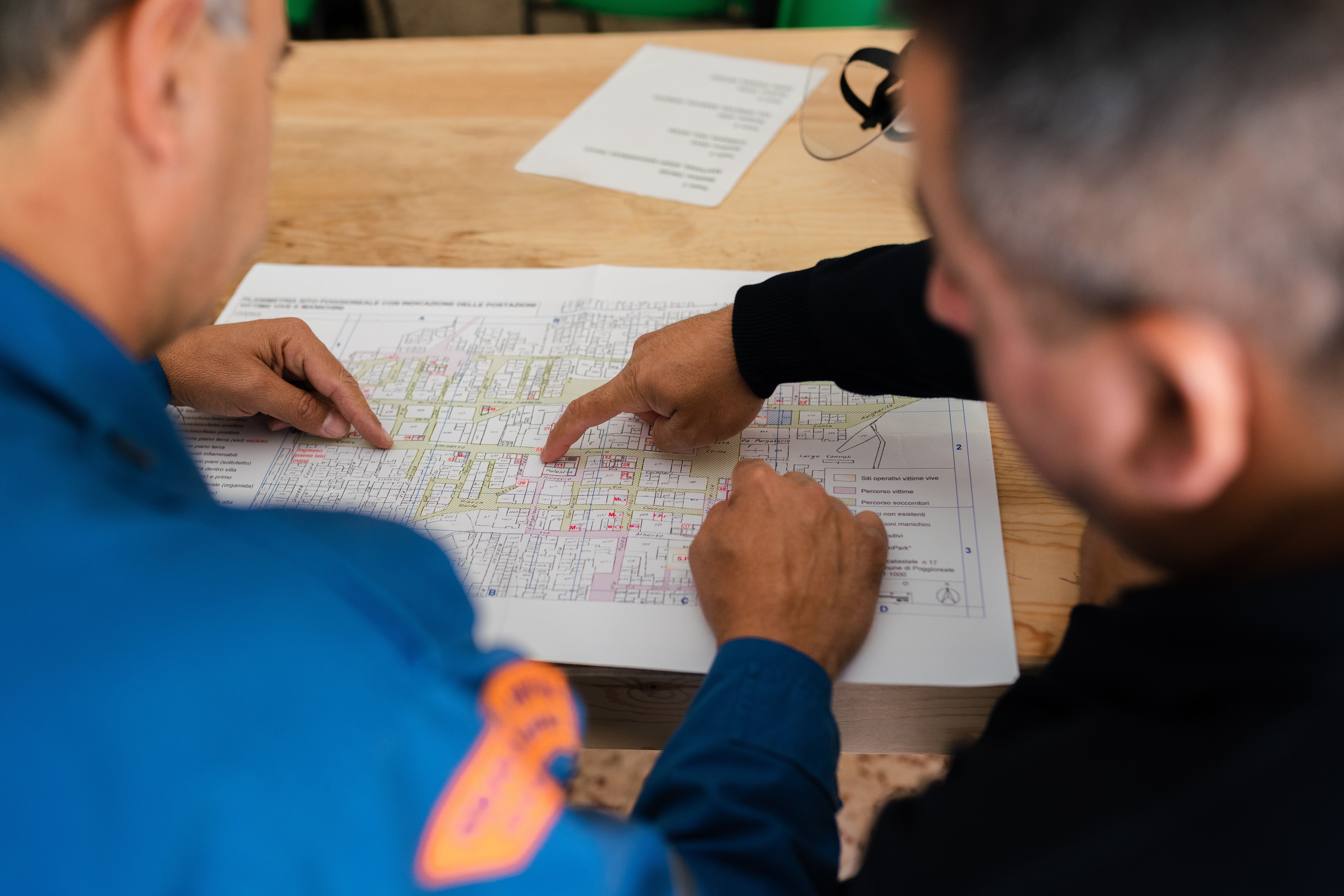While fields within the world of engineering are often considered difficult, the world needs more excited and qualified civil engineers. So if you have an aptitude for mathematics, physics, design, and creativity (and are ready to settle in for a degree or two), the civil engineering field would be lucky to have you.
Civil engineers design, construct, and maintain the private and public infrastructure that affects the lives of everyone in our modern society. No matter where you live, there is no place that is untouched by the work of civil engineers. From bridges to drinking water supplies to buildings and the very earth these structures rest on, civil engineers were involved in conceptualizing and implementing all of these developments.
And as an added bonus, the field of civil engineering is constantly growing. The United States Bureau of Labor Statistics predicts that about 24,200 civil engineer positions will open annually over the next 10 years, with a median salary of about $88,000. This means that if you’re interested in building both your community and career, civil engineering may be a field worth considering.
Because of their many different subfields within the industry, civil engineers often choose to specialize in one area or another after meeting the initial career requirements. Trust us, there are a lot of directions to pursue depending on your interests and the areas you’d like to practice in.

via Unsplash
Civil engineering also demands constant creativity and innovation. This is especially true for projects in areas where nature is less predictable: marshy earth, heavy rains, or even eroding landscapes. In these situations, civil engineers in the area will cater their designs, plans, and ideas to meet the needs of the land. Many civil engineers have an additional focus on sustainability and preserving the land on which they work.
That said, for the majority of the population, anything with the term engineering always sounds difficult. Perhaps it’s the math, physics, spatial reasoning, or advanced degrees that come to mind that set off the alarm bells. As long as you have a passion for planning and constructing infrastructure, however, the process isn’t too extensive.
All it takes is some schooling, some practice, and eventually some specialization. In this article, we’ll break down the requirements of becoming a civil engineer, the licensures you’ll need, and how you can gain experience to kickstart the civil engineering career of your dreams.
What Skills Do I Need to Become a Civil Engineer?
To become a civil engineer, applicants are required to have at least a bachelor’s degree and, depending on the locality in which they work, possibly a master’s degree in a specialized area. Working as a civil engineer requires several skills that you’d probably already expect and a few others that might surprise you.

via Unsplash
Advanced Math
The first skill that comes to mind is, of course, advanced math. For example, Louisiana State University requires its civil engineering majors to complete, at minimum, coursework in multidimensional, integral, and differential calculus. That’s in addition to differential equations and statistics.
In conjunction with the math courses, the major also requires advanced credits in chemistry, geology, and physics. Beyond the general education requirements, most programs offer a variety of civil engineering-specific classes. With such a diverse and important field, there is a lot to learn. Because of the specific coursework required, setting goals before you attend a university will be crucial so that you have a game plan along the way.
As far as where to complete your coursework, you may want to look into an Accreditation Board for Engineering and Technology (ABET) certified program. In many states, a degree from an accredited program is a standard requirement for the Professional Engineering (PE) license, which you’ll eventually need later in your career. As it turns out, planning city structures is not the only type of planning required while pursuing a career as a civil engineer. Planning your education step by step can save you lots of time and energy in the future.
Communication Skills
You will also need clear communication skills to be able to work well with your team. We know what you must be thinking: math and communication skills? But it can be done!
A large part of civil engineering involves creating and explaining plans so that everyone is on the same page. It’s important to realize that not everyone is inside your head, so you must adapt your explanations accordingly. Often, the more comfortable you feel with a certain subject matter, the more clearly you can convey the information.
Reading Comprehension
To pair with your math, science, and communication skills, you’ll also need some strong reading comprehension skills. After all, a large portion of civil engineering boils down to understanding the principles and texts written about prior projects. You don’t need to reinvent the wheel each time you design. Someone has already done it and has likely written down their considerations. You just need to understand what they’ve done and make it your own.
Critical Thinking
Finally, you’ll need one more crucial skill: critical thinking. What good are classes, communication, and comprehension if you aren’t able to apply those concepts to specific situations? Critical thinking involves knowing the why behind decisions and using lessons from one situation and applying them to others.
It’s crucial that civil engineers can think critically about optimal solutions and understand the “why” behind their decisions. Just consider the bridge you drive over to get home or the stairs leading up to your third-floor apartment. Civil engineers must assess the hundreds of pieces of each structure and their reasons for being there. Each decision must be intentional and informed. Critical thinking allows you to combine your skills with practical experience to make smart, evidence-supported decisions.
How Do I Gain Experience as a Beginner Civil Engineer?
The best way to gain experience as a beginner civil engineer and show a future employer that you are capable is through good, old-fashioned internships and apprenticeships. Once you finished your accredited degree, you’re unfortunately not quite ready to start working yet. While you might be able to read a book and pass your classes at college or university, being a civil engineer requires some hands-on practice.
Luckily, because employers understand that aspiring civil engineers need prior experience before they can take on major projects themselves, many firms offer summer internships that allow college students or recent graduates to get their foot in the door.
Another piece of good news? Many of these internships are even paid! Interning as a civil engineer can give you the opportunity to work under an experienced professional, and some may even allow you to explore the multiple fields offered within the civil engineering industry.
The more exposure you have to the field, the better and more qualified you will look for future firms. Getting internships at the beginning of your career can really bolster your resume and credentials moving forward. Plus, meeting and networking with other engineers or getting involved in civil engineering organizations can provide new and exciting opportunities.
Is Getting a Civil Engineering License Hard?
Once you’ve completed your degree and the internships, you’ll finally be ready to enter the workforce, and at that point getting a civil engineering license will not be hard. You’ll be excited to find a firm where you’ll be a good fit and maybe even take on a project or two right out of the gate!
But there’s one more step before you can do all of that. Depending on your goals and place of practice, you might be required to get licensed. According to the National Society of Professional Engineers, there are two major exams you will need to take for licensing: the Fundamentals of Engineering (FE) Exam and the Principles and Practice of Engineering (PE) Exam
The FE exam can be completed immediately upon graduating with your Bachelor’s Degree in Engineering, and successful completion wins the applicant the official title of “engineer in training” or EIT. The PE exam, on the other hand, is state-specific, and it requires at least four years of professional experience. You’ll need to pass the PE exam before you can lead any public project.
Once you have your PE license, you may choose to further your qualifications by getting certified in a specialization. The American Society of Civil Engineers promotes lifelong learning for civil engineers who want to further their careers.
It offers a variety of additional certifications such as Coastal Engineering, Navigational Engineering, and Geotechnical Engineering. However, the ASCE is picky about the qualifications of its engineers. In addition to the PE certification, it wants its civil engineers to have a master’s degree and eight years of post-licensure progressive work experience.

via Unsplash
Final Thoughts
Though not necessarily a short process, the path for future civil engineers tends to be linear and logical, just like the dreamers entering the field. And in case you’re worried about getting lost along the way, there is no shortage of associations that offer resources to guide applicants through each step of the process.
In addition to informational resources, the trusted team at Fenstermaker has compiled civil engineering resources for specific projects, so that no one ever feels unsupported in their journey.
Without competent and passionate civil engineers, society would cease to exist as we know it. Their plans and structures carry a lot of weight, and there are several skills to ensure that potential engineers are trained for the lift. Civil engineers help shape our past, present, and future.
With some math, advanced science coursework, critical thinking, reading comprehension, internships, and a degree and some certifications, you could become a part of the legacy. For more information and resources on how to change the world, visit Fenstermaker today.





